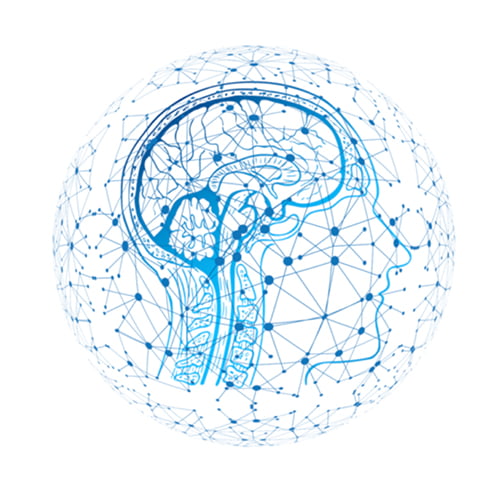
Worldwide, 50 million people are living with Alzheimer’s and other dementias. By the year 2050, this number could grow to 100 million (1,2). This year, as the world faces the global COVID-19 health crisis, fragile people and especially patients suffering from neurodegenerative diseases are particularly affected (3). This crisis also impacts Alzheimer’s research as well as patient care. New solutions must be found, particularly digital solutions, to ensure the best possible follow-up of Alzheimer’s patients and the continuity of clinical studies.
The year 2020 also brings hope for patients and caregivers, as a recent study showed that a molecule could significantly act on the brain lesions that are associated with the disease – and have a positive impact on cognition, memory and autonomy (4). However, this hope creates new needs: being able to differentiate earlier and more broadly the right patient profiles, to eventually prescribe this treatment to the right patient at an early stage of the disease.
In this context, innovation plays a crucial role in preparing and guiding these changes, especially the development of Artificial Intelligence (AI). According to Professor François Cotton, neuroradiologist, head of the imaging department at the Hospices Civils de Lyon (HCL) and president of the French Society of Neuroradiology (SFNR), “AI will become important to help clinicians with patient care and respond to new clinical challenges by enabling the analysis and comparison of very large amounts of imaging, biology or clinical data. With the performance of AI algorithms, new biomarkers that are highly accurate at the patient level, will help and guide physicians in their decisions for optimal and personalized care.”
Qynapse is strongly committed to innovation in the field of neurodegenerative diseases, particularly Alzheimer’s. “By combining the latest advances in neuroimaging and artificial intelligence algorithms, our solutions represent powerful tools for the diagnosis, disease monitoring and patient care for Alzheimer’s disease. We have been working for several years alongside renowned experts to develop and validate our solutions and effectively integrate these into the patient’s journey”, emphasizes Olivier Courrèges, CEO of Qynapse.
Qynapse crossed a major international development milestone in 2020, with the approval by the US Food and Drug Administration (FDA) of its first medical device software, QyScore®, for its use in clinical routine settings. Already approved for several years in Europe, it is being used in prominent clinical centers to support neurologists and radiologists, providing them with robust quantitative analyses of brain MRI markers that intervene early in the process of neurodegenerative diseases – such as Alzheimer’s disease.
According to Prof. Bruno Dubois, professor of neurology at the Sorbonne University and director of the Institute of Memory and Alzheimer’s Disease (IM2A) at the Pitié Salpêtrière Hospital in Paris, “Automated quantification of markers is an essential technology for analyzing patients’ MRIs more accurately and rapidly. For Alzheimer’s disease, for instance, the analysis of the hippocampal volume supports an easier and more systematic detection of patients at a very early stage of the disease, when cognitive symptoms are not very visible. This is a major aid for better identification of patients at risk of developing Alzheimer’s disease, that also benefits the patient’s family and caregivers.”
In addition to its clinical routine application, QyScore® is also being used as part of a clinical trial for a promising new Alzheimer’s drug. Therefore, the expected impact of this solution goes beyond a better diagnosis and a more personalized follow-up of patients; it may also contribute to the approval of new drugs to treat the disease. Finally, Qynapse is investing a large part of its resources in research to develop new software that uses biological and clinical data in addition to imaging data. “Thanks to machine learning algorithms, this kind of solution will allow better characterizing of patients profiles to help clinicians anticipate the clinical evolution and therefore offer more personalized care”, concludes Olivier Courrèges.
References: 1. The Alzheimer’s Association www.alz.org 2. GBD 2016 Dementia Collaborators. Global, regional, and national burden of Alzheimer’s disease and other dementias, 1990-2016: a systematic analysis for the Global Burden of Disease Study 2016. Lancet Neurol. 2019;18(1):88-106. doi:10.1016/S1474-4422(18)30403-4 3. Ferini-Strambi L, Salsone M. COVID-19 and neurological disorders: are neurodegenerative or neuroimmunological diseases more vulnerable? [published online ahead of print, 2020 Jul 21]. J Neurol. 2020;1-11. 4. Budd Haeberlein S, von Hehn C, Tian Y, et al. EMERGE and ENGAGE Topline Results: Two Phase 3 Studies to Evaluate Aducanumab in Patients With Early Alzheimer’s Disease. Presented at: 12th Annual CTAD Meeting; December 4-7, 2019; San Diego, CA.